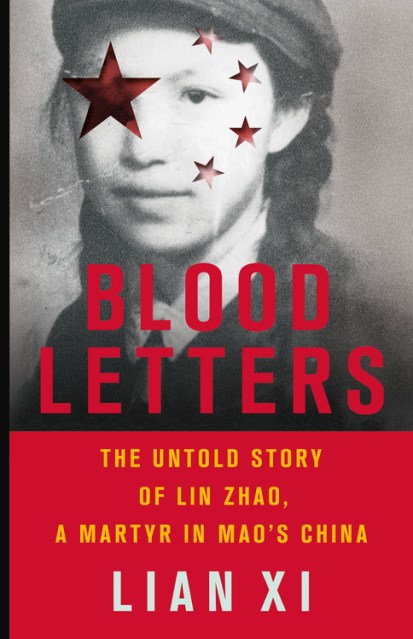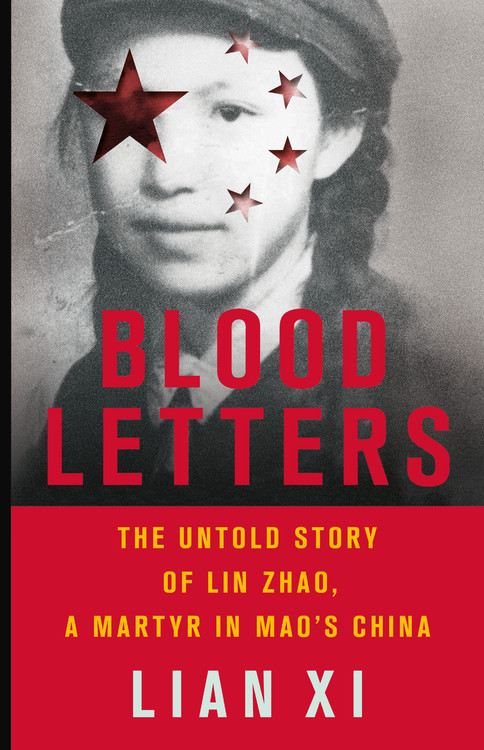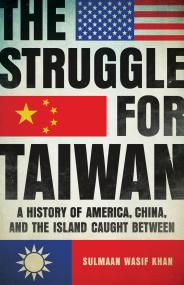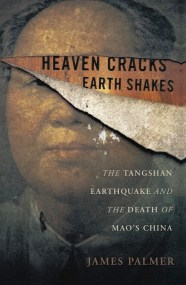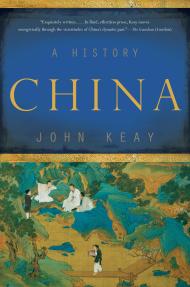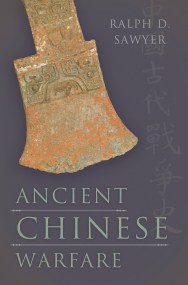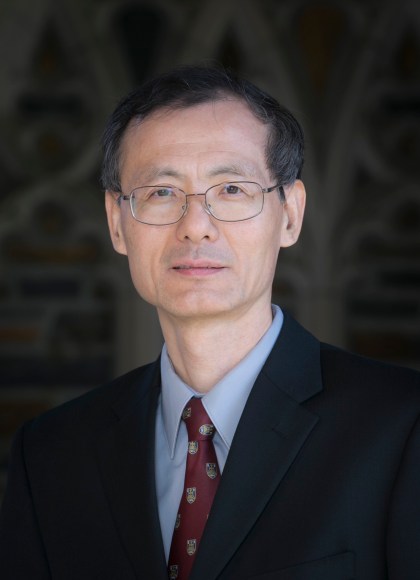By clicking “Accept,” you agree to the use of cookies and similar technologies on your device as set forth in our Cookie Policy and our Privacy Policy. Please note that certain cookies are essential for this website to function properly and do not require user consent to be deployed.
Blood Letters
The Untold Story of Lin Zhao, a Martyr in Mao's China
Contributors
By Lian Xi
Formats and Prices
- On Sale
- Mar 20, 2018
- Page Count
- 352 pages
- Publisher
- Basic Books
- ISBN-13
- 9781541644236
Price
$30.00Price
$39.00 CADFormat
Format:
- Hardcover $30.00 $39.00 CAD
- ebook $19.99 $25.99 CAD
- Audiobook Download (Unabridged)
This item is a preorder. Your payment method will be charged immediately, and the product is expected to ship on or around March 20, 2018. This date is subject to change due to shipping delays beyond our control.
Buy from Other Retailers:
Blood Letters tells the astonishing tale of Lin Zhao, a poet and journalist arrested by the authorities in 1960 and executed eight years later, at the height of the Cultural Revolution. The only Chinese citizen known to have openly and steadfastly opposed communism under Mao, she rooted her dissent in her Christian faith — and expressed it in long, prophetic writings done in her own blood, and at times on her clothes and on cloth torn from her bedsheets.
Miraculously, Lin Zhao’s prison writings survived, though they have only recently come to light. Drawing on these works and others from the years before her arrest, as well as interviews with her friends, her classmates, and other former political prisoners, Lian Xi paints an indelible portrait of courage and faith in the face of unrelenting evil.
Genre:
-
"Blood Letters is one of the most important books on the Communist-era rights movements to be published in recent years. It is not only the first biography of Lin in English, but also the first in any language to carefully sort through the sometimes overwrought and polemical writing inspired by her martyrdom... highly readable, deeply informed..."New York Review of Books
-
"[Lin Zhao's] story is grippingly related... her fate was inevitable: death by a firing squad. But thanks to scholar Lian Xi, her words survive."Washington Times
-
"Blood Letters is an unsparing, meticulously researched, moving but unsentimental look at a complex and heroic figure. Without shying away from the realities of Lin Zhao's personal flaws and inner torment, Lian Xi's work also recognizes her important legacy, making it widely accessible for the first time to an English-speaking audience... an important-even vital-book."Christianity Today
-
"A moving account of astonishing human courage in the leering face of human cruelty."Kirkus Reviews
-
This book deeply moved me: it is the story of the most harrowing and heroic martyrdom in the history of faith in modern China. Lian Xi's work of witness is groundbreaking.Liao Yiwu, exiled writer and author of God Is Red, The Corpse Walker, and For a Song and a Hundred Songs
-
"China's achievements and failures are usually celebrated or condemned on the mass scale. The vivid individuality of the men and women who have fought bravely to change their nation can fade from view. Blood Letters is the most powerful antidote to that amnesia. Lin Zhao's story, nearly erased or forgotten, will live as an example of civic and personal courage to inspire people in her country and elsewhere."James Fallows, Atlantic
-
"A few courageous Chinese dissidents--Wei Jingsheng, Liu Binyan, Fang Lizhi, Liu Xiaobo, and others--have become known to the world. Their actions and their stories were able to emerge once Mao Zedong was gone. Others, who fought back while Mao was still alive, received bullets in the back of the head and immaculate erasure of their stories. They included Lin Zhao, Yu Luoke, Zhang Zhixin, and uncountable others whose names we do not know. Blood Letters, the rescued story of Lin Zhao, shows us an indomitable woman who was both a martyr and true pioneer."Perry Link, author of Liu Xiaobo's Empty Chair: Chronicling the Reform Movement Beijing Fears Most
-
"Lin Zhao is a great hero of the faith, a brilliant and courageous figure no less than Bonhoeffer and Solzhenitsyn, willing to give her life for the truth of God. May a thousand flowers like Lin Zhao bloom in the China of today!"Eric Metaxas, #1 New York Times bestselling author of Bonhoeffer, If You Can Keep It, and Martin Luther
-
"Blood Letters tells the story of Lin Zhao's martyrdom with the elegance her life demands.... Lian Xi's book will surely become a classic not only as we come to understand the struggle of Christians in China but also for how the story he tells helps us understand China."Stanley Hauerwas, Gilbert T. Rowe Professor Emeritus of Divinity and Law at Duke University
-
"Blood Letters is a genuinely exciting book. Lian Xi sheds a whole new light on an extraordinarily important Christian figure (and martyr) who has hitherto been utterly unknown outside a narrow band of specialists.... A masterpiece."Philip Jenkins, author of Crucible of Faith: The Ancient Revolution That Made Our Modern Religious World
-
"Blood Letters, carefully researched and timely, reveals the trajectory of a privileged girl who went from Christian to communist comrade to a Christian resister whose crime was being an 'impenitent counterrevolutionary.' Even told poorly, this would be a remarkable story. Xi tells it in memorable fashion."Christian Century
Newsletter Signup
By clicking ‘Sign Up,’ I acknowledge that I have read and agree to Hachette Book Group’s Privacy Policy and Terms of Use
